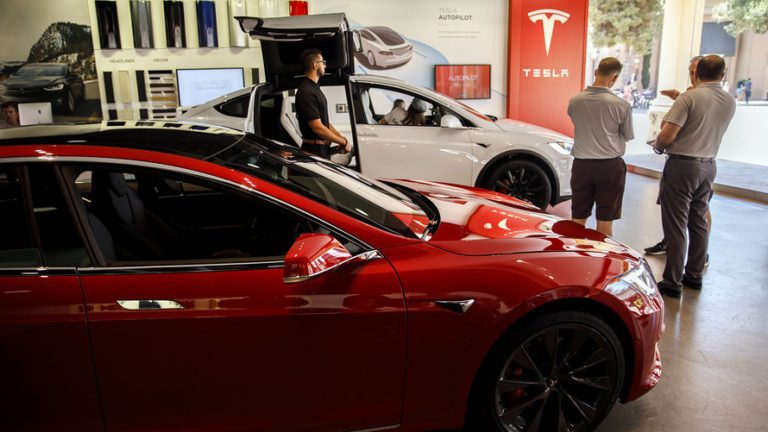

Volatility surrounding Tesla Inc. is making it “extremely challenging” to come out with a coherent trading strategy for the stock at the moment, analysts at Morgan Stanley said in a note Tuesday.
The analysts, led by Adam Jonas, kept their rating on Tesla TSLA, -1.90% stock their equivalent of neutral, saying the stock trades near its fair value amid recent volatility and that they’d “wait for the market to create better opportunity for investors to take a directional view.”
The note, from known Tesla bulls, addressed several concerns swirling about Tesla, including Chief Executive Elon Musk’s recent behavior on Twitter and news the company had asked some suppliers for discounts.
The analysts wrote they have fielded several questions from investors “about the unpredictable nature of Tesla management’s communications strategy.”
Musk has had several Twitter tussles in recent weeks, culminating with a tweet calling one of the divers involved in the Thai cave rescue of a young soccer team a “pedo.” Musk deleted the tweet, and later on apologized to the rescue diver and to his companies.
Musk has benefited somewhat from his “regular, often candid” communications in social media, Morgan Stanley said. Most of the time, investors “could draw a clear intellectual link” between message and business and “get a glimpse into the mind” of a unique business leader, they said.
“In recent weeks, the subject matter seems to have, at times, strayed away from the business and, as such, has become increasingly difficult for investors to defend,” the analysts said.
A report this week saying Tesla wrote to some suppliers to ask for discounts might have been blown out of proportion, which would be understandable given the sentiment around Tesla, the analysts said.
Tesla has said it did not ask for cash back, and that only future price concessions are on the table. Such negotiations are standard practice, the company said.
“Our discussions with investors suggested the market is interpreting the move as consistent with a company that is struggling with liquidity,” the analysts said. It is not usual for an auto maker to negotiate volume discounts — but this grabs more attention at Tesla “given the proportional weighting of the Model 3” on Tesla’s revenue, they said.
For the stock to break out of its recent spell, Tesla needs to post second-quarter results that show a smaller cash burn complete “with some assurance that it was not a one-off;” deliver more Model 3 sedans, as Tesla owners “tend to make the best salespeople;” and “take steps to prevent the balance sheet from impacting the long-term business,” the analysts said.
Tesla is scheduled to report second-quarter earnings after the market closes on Aug. 1. Analysts polled by FactSet expect Tesla to report an adjusted loss of $2.77 a share, compared with an adjusted loss of $1.33 in the second quarter of 2017, on sales of $4.05 billion, compared with sales of $2.79 billion in the year-ago period.
Tesla shares are down more than 5% this year, contrasting with 5.5% gains for the S&P 500 SPX, +0.48% and a 2.1% advance for the Dow Jones Industrial Average. DJIA, +0.79% That underperformance is starker in a 12-month period, with Tesla shares down nearly 14% compared with advances of 14% and 17% for the S&P and the Dow.